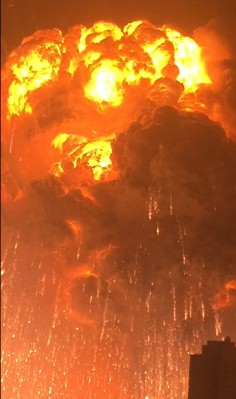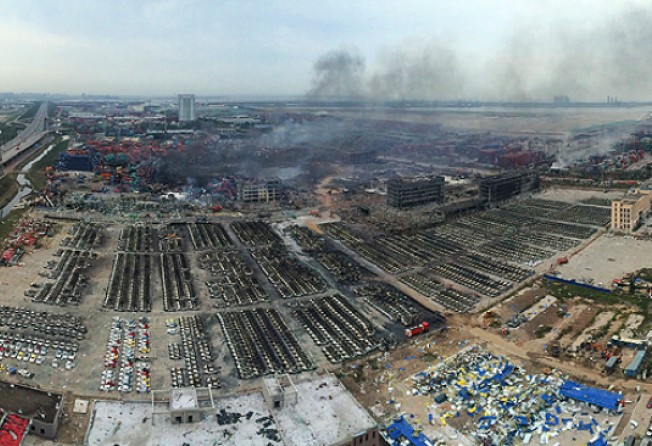
Authorities must act now to prevent future deadly disasters
Enforcement of regulations and monitoring of compliance are needed to root out a culture of denial, corruption and collusion that leads to tragic accidents

If anything good could possibly emerge from the catastrophic industrial explosions in Tianjin - apart from stories of heroism and survival - it would have to be assurance that the authorities will spare no effort in confronting the causes. Alas, until they recognise that prevention is better than the cure of repeated crisis management, that appears a forlorn hope. The official response so far has revealed more questions than answers. Yesterday, at their second press conference after the event, officials still could not say what chemicals were stored in the hazardous goods storage facility that blew up.

It is shocking enough that two huge explosions, the second likened to the force of 21 tonnes of TNT, and then fire devastated 20,000 square metres of industrial park in one of the largest ports in China, let alone that we have no idea what caused the apocalyptic scenes. Sketchy information points to lack of enforcement of basic safety requirements and lax emphasis on operational safety. State media has confirmed that the facility violated safety rules. For example, toxic explosive chemicals were stored within 600 metres of a residential area and main roads, well under the regulation minimum of one kilometre, with two hospitals, a convention centre, and several other residential compounds and a soccer pitch also nearby. Who could be responsible for approving such reckless disregard for civilian and occupational safety?
The rapid dispatch of more than 200 nuclear and biochemicals materials specialists by the military is evidence of government concern. But officials remained tardy in sharing timely information on monitoring of atmospheric toxicity.
As usual after such an accident, they can be expected to vow to improve China's woeful record for industrial safety, order a nationwide check of similar facilities, and punish company executives and local officials. But that won't be enough to root out a culture of denial, corruption and collusion. There must be suspicion that officials were bribed to grant irregular approvals. Sadly, without effective sustained enforcement of regulations and monitoring of compliance, and not just after an event that kills so many people, the next disaster is just waiting to happen.